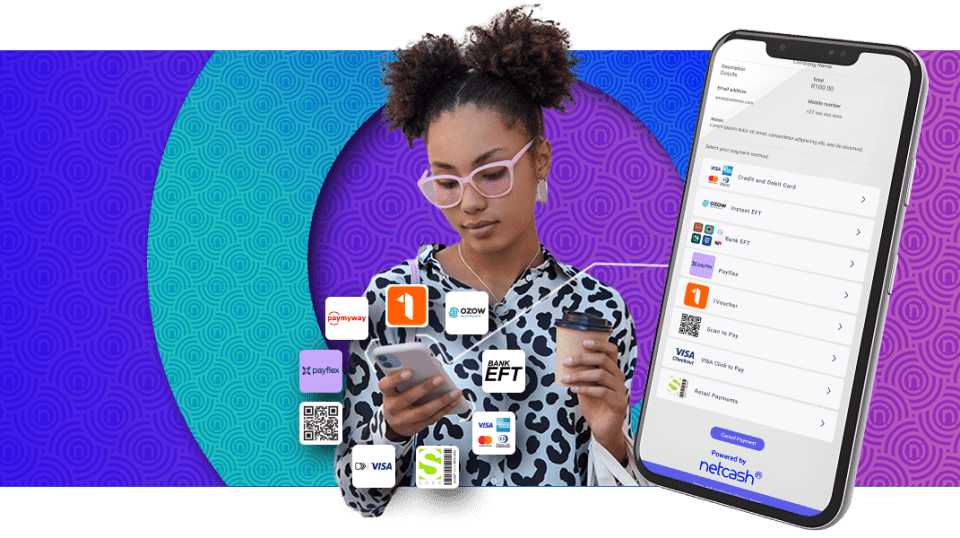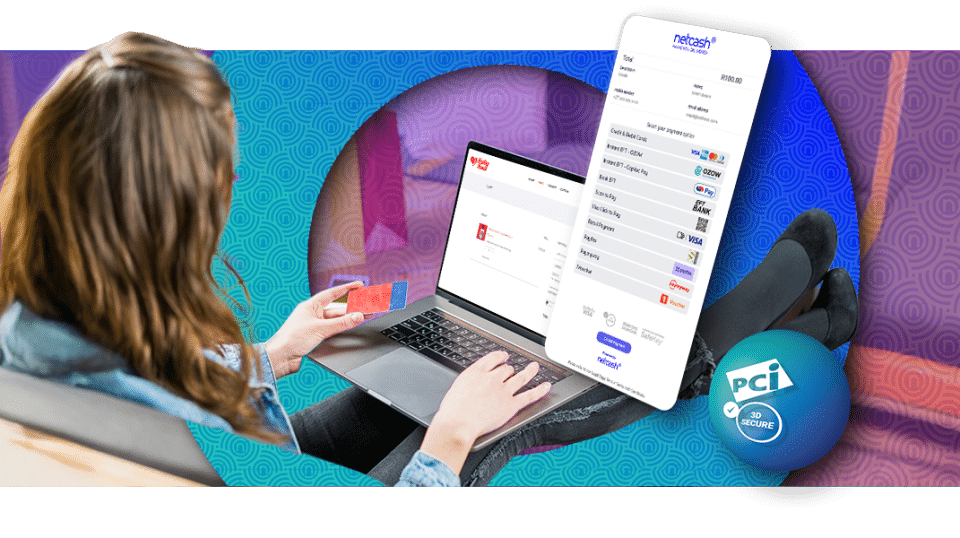
Top online payment methods in South Africa (2025 update)
November 14, 2025
Mobile Wallet Trends in South Africa: What’s Next for 2026?
November 28, 2025The digital transformation in South Africa is steadily underway, and evidence of this can be seen in the evolving online payment landscape. Over the years, online shoppers have opted for newer payment methods, slowly transitioning from cash-on-delivery to digital payments.
If you’re a South African business owner wanting higher online sales and better customer satisfaction, you’ll want to offer a diverse range of online payment methods. This provides shoppers with digital alternatives to traditional forms of payment that are either slow or riskier. Embracing online methods of payment can help you stand out in any competitive industry.
This detailed comparison guide breaks down each online payment method in South Africa, its advantages and disadvantages for both you and customers, and how to choose the right one.
Don’t get left behind in the digital shift.
Offer your customers fast, secure online payment options that boost sales and trust.
Overview of types of online payment methods
According to Statista, the most commonly used types of payments by online shoppers are credit cards and bank transfers, accounting for 65% of all eCommerce transactions.
However, South Africans are gradually moving away from these, embracing newer methods such as Buy Now, Pay Later, digital wallets, and peer-to-peer money transfers like PayShap.
Here’s an overview of the different payment options your business can offer, from the latest ones gaining a lot of traction to tried-and-tested methods that customers already use and trust.
What are the most popular online payment methods in South Africa?
The latest industry data shows that cards, Instant EFTs, PayShap, BNPL and digital wallets are the fastest-growing online payment methods in South Africa. Each option has unique benefits depending on your business model, customer base, and checkout strategy.
1. Buy Now, Pay Later (BNPL)
This new entrant is revolutionising online payments in South Africa. Buy Now, Pay Later (BNPL) allows customers to make immediate purchases and pay in instalments, often interest-free.
Unlike cash or card transactions, where payment is required upfront, BNPL operates as a short-term credit facility. Service providers such as Payflex, PayJustNow, and Happy Pay have seen massive user expansion, with millennials and Gen Z as early adopters.
This model works really well in South Africa, given the country’s harsh economic conditions, characterised by sluggish growth and high unemployment. Offering BNPL can boost your business by reducing cart abandonment and allowing customers to have larger cart sizes. BNPL has become one of the most searched-for online payment solutions in South Africa, especially for shoppers looking for flexible, budget-friendly options.
Key takeaway: BNPL offers customers flexible payment options, helping reduce cart abandonment and increase average order values. It’s a smart move in a tough economy.
2. Instant, real-time payments
As South Africans gradually shift from cash payments, they need an alternative that is just as instant. That’s where real-time payments (RTPs) come in. This online payment option allows users to make nearly immediate money transfers between bank accounts, right from their mobile device.
When PayShap entered the scene in 2023, it changed how people view bank-to-bank transfers. This means no more waiting for business days for funds to clear. Since then, adoption has been fast. Major banks offer PayShap, meaning swifter transactions between people and businesses.
Key takeaway: Real-time payments speed up transactions, improve cash flow, and reduce friction, making them a valuable option for SMEs looking to offer faster, safer payments.
3. Digital wallets
Digital wallet usage in South Africa has grown rapidly, driven by mobile-first shoppers and major banks supporting Apple Pay, Google Pay and Samsung Pay.
This payment option allows customers to store their card details securely and pay online or in-store without needing to present a physical card. When a payment is made, the digital wallet uses Near-Field Communication (NFC), which facilitates the exchange of data between devices.
Popular global options like Apple Pay, Google Pay, and Samsung Pay are gaining traction in the South African market, supported by major banks such as Capitec, FNB, Absa, and Discovery.
Key takeaway: Digital wallets offer speed, security, and convenience, making them a powerful way to cater to South Africa’s growing base of mobile-first shoppers.
4. QR code payments
QR code payments have become a familiar sight at cafés, markets, and many retail counters across South Africa. This payment type allows customers to scan a code using their smartphone and pay instantly, without the need to hand over their bank card or cash.
Popular services like SnapScan, Zapper, and Masterpass have played a big role in driving this trend. QR payments continue to show strong adoption across South Africa, making them one of the most cost-effective online payment methods for SMEs. They provide merchants with easy setup options, low transaction costs, and instant payment confirmations. These Scan to Pay payment options work very well for small businesses and informal traders, as they don’t require expensive point-of-sale infrastructure.
Key takeaway: QR code payments offer a simple and cost-effective way to accept digital payments, making them ideal for SMEs and informal businesses looking to modernise their transactions.
Next Read: How Zapper improves business efficiency and operations.
5. Instant EFTs
Instant EFTs are one of the most popular online payment methods in South Africa, allowing customers to make direct payments from their bank accounts to yours, in real-time, without needing to manually enter banking details. This method bridges the gap between traditional EFTs (which take 1 to 3 business days to clear) and card payments.
South African providers like Ozow and PayFast make instant EFTs more accessible by integrating directly with major banks. Customers simply select their bank, log in securely, and approve the payment. Funds are cleared instantly, reducing delays and improving cash flow.
Key takeaway: Instant EFTs provide a secure, real-time alternative to cards, enhancing cash flow and reaching customers who prefer bank transfers over credit.
6. Vouchers
Vouchers are a practical payment method in South Africa, particularly for customers who don’t have access to bank cards or digital wallets. Many people prefer buying prepaid vouchers from physical retail outlets or online platforms, then redeeming them during the checkout process.
Popular options include 1Voucher and paymyway, which allow customers to use cash to buy a code that can be entered online to complete payment. This is quite helpful for reaching underbanked or rural customers who want to shop online but may not trust or have access to digital banking.
Key takeaway: Vouchers bridge the gap between cash and digital payments, allowing businesses to reach customers who are underserved by mainstream banking options.
7. Credit and debit cards
Credit and debit cards remain a dominant payment method in South Africa, accounting for the largest share of online transactions. Most customers are familiar with card payments, which makes them a tried and trusted option.
For businesses, accepting cards is often essential. Integrating with reliable payment gateways ensures secure transactions, supports recurring billing, and provides customers with a familiar checkout experience. It also helps with staying compliant with local laws and global standards, such as the Protection of Personal Information Act (POPIA) and the PCI DSS framework.
Key takeaway: Cards are still the backbone of secure online payments in South Africa. They offer familiarity, trust, and wide acceptance, though often at a higher cost than newer methods.

Methods of online payment in South Africa: Comparison table
Here’s a table comparing the different types of payment methods available in South Africa.
Online payment methods in South Africa compared
| Payment method | Speed | Security | Cost to business | Customer reach | Ideal for |
| BNPL | Fast | High | Moderate | Growing (Millennials and Gen Z) | Boosting sales, reducing cart abandonment |
| Real-time payments | Instant | High | Low | Expanding | SMEs needing fast settlement |
| Digital wallets | Instant | Very high | Low to moderate | Mobile-first customers | Modernising checkout |
| QR code payments | Instant | High | Low | SMEs, informal markets | Low-cost, easy adoption |
| Instant EFTs | Instant | High | Low | Non-card users | Secure, real-time bank payments |
| Vouchers | Slower | High | Low | Underbanked groups | Reaching cash-based customers |
| Credit/Debit cards | Fast | High | High | Wide | Essential baseline payment method |
Your customers are ready for digital payments — are you?
Simplify transactions, improve cash flow, and grow your business with trusted online payment solutions.
Pros and cons of each method of payment for businesses
Have a look at the advantages and disadvantages of each payment method for businesses.
Buy Now, Pay Later (BNPL)
Pros:
- Encourages higher cart values and reduces cart abandonment.
- Attracts younger shoppers who prefer flexible payment terms.
- Providers handle credit risk, so businesses receive payment upfront.
Cons:
- Settlement may not be as fast as RTPs or instant EFT payments.
- Transaction fees can be higher than some other methods.
- Integration with BNPL providers may require additional setup.
Instant, real-time payments
Pros:
- Immediate settlement improves cash flow.
- Lower transaction fees compared to card payments.
- Reduces payment delays and friction at checkout.
Cons:
- Still gaining traction for person-to-business transactions.
- May require customers to use specific banking apps or services.
Digital wallets
Pros:
- Faster, smoother checkout process for mobile shoppers.
- Lower fraud and chargeback risks due to tokenisation and biometrics.
- Can enhance customer experience and loyalty.
Cons:
- Limited compatibility depending on the customer’s device or bank.
- May need additional integration depending on the wallet provider.
QR code payments
Pros:
- Low setup and transaction costs.
- Ideal for SMEs, informal traders, and physical stores.
- Instant payment confirmation and reduced cash handling.
Cons:
- Relies on customers having a smartphone and a scanning app.
- Not all customers are familiar with QR payments yet.
Instant EFTs
Pros:
- Real-time payment confirmation without card fees.
- Fewer chargebacks compared to card transactions.
- Reaches customers who prefer bank transfers over cards.
Cons:
- Customer experience largely depends on the bank’s interface.
- Some users may be hesitant to log in via third-party payment pages.
Vouchers
Pros:
- Expands reach to underbanked and cash-based customers.
- No risk of chargebacks or card fraud.
- Simple for customers who don’t have cards or digital wallets.
Cons:
- Not as fast as real-time methods; redemption can take longer.
- Vouchers may involve additional admin for reconciliation.
Credit and debit cards
Pros:
- Widely accepted and trusted by customers.
- Essential for reaching the broadest possible market.
- Supports recurring billing and subscriptions.
Cons:
- Higher transaction fees compared to some alternatives.
- Risk of chargebacks and potential fraud.
- Requires PCI DSS compliance for secure processing.

Payment options vs payment gateways
Payment options refer to the methods customers use to pay. Each option caters to different preferences and situations, from mobile-first shoppers to cash-based customers.
Payment gateways, on the other hand, are the platforms that process and manage these payment options. They act as the bridge between your business, your customer’s bank, and the different payment networks.
Payment gateway comparison table
A good payment gateway should support multiple payment options, keep transactions secure, integrate smoothly with your systems, and offer transparent pricing.
Here’s a quick comparison of some of the top players in South Africa:
| Payment gateway | Supported payment methods | Settlement speed | Security and compliance | Key features |
|
| Cards, Instant EFTs, PayShap, BNPL (Payflex), QR codes, Vouchers | Instant–1 day | PCI DSS Level 1 | All-in-one platform, local support, broad coverage |
|
| Cards, Instant EFT (Ozow), SnapScan, Mobicred | 1–2 days | PCI DSS, SSL | Easy setup, popular for eCommerce |
|
| Cards, EFT, BNPL, Wallets | 1–2 days | PCI DSS, 3D Secure | Developer-friendly, supports multiple African markets |
|
| Instant EFT only | Instant | PCI DSS, SSL | Specialist in instant EFTs, fast settlement |
|
| Cards, Tap-on-Phone, QR Codes, EFT | 1–2 days | PCI DSS, SSL, 3D Secure | Popular with SMEs, easy in-person + online payments |
South Africans are shopping online more than ever.
Give them the convenience and security they expect with a reliable local payment gateway.
How to choose the right online payment method for your business
Choosing the best online payment methods depends on your customers and your business needs. For most South African businesses, a combination of card payments, Instant EFTs, PayShap, QR codes and BNPL provides the widest customer reach. There’s no one-size-fits-all solution, so offer a mix that covers different preferences and situations.
Know who your customers are. If you’re targeting younger, mobile-first shoppers, focus on BNPL, digital wallets, and QR payments. These methods offer speed and flexibility, which this group values most.
For rural or underbanked audiences, vouchers and PayShap are great. They give people without cards or digital banking access a simple way to shop online. Catering to this demographic can significantly expand your customer base.
Next, think about cash flow. Real-time payments and instant EFTs are excellent for improving settlement speed and reducing payment delays. Faster payments lead to better liquidity and reduced reliance on credit.
It’s also smart to keep credit and debit cards as a core option. They remain the most trusted and widely used payment methods in South Africa, making them essential for inclusive coverage.
Finally, consider integration and management. Platforms like Netcash allow you to offer multiple payment options through a single provider. This simplifies reconciliation, reduces admin, and gives your customers the freedom to pay however they prefer.

Frequently Asked Questions
South African online payment options compared: Wrapped up
South Africa’s payment landscape is evolving fast. Shoppers are shifting away from cash and traditional EFTs towards faster, more flexible methods, such as BNPL, PayShap, QR codes, and digital wallets.
For businesses, the key is to offer a balanced mix of trusted options and innovative solutions. This helps you reach more customers, speed up cash flow, and reduce friction at checkout.
By partnering with Netcash, you can manage all these payment methods through a single, secure, and reliable platform, making it easy to stay competitive as the market continues to evolve.
One platform. Multiple payment methods.
Give your customers the freedom to pay their way — all through Netcash.

Bennie Bester is a Solutions Architect at Netcash, specialising in designing and implementing innovative payment and integration solutions. With a passion for technology and efficiency, Bennie focuses on creating seamless systems that empower businesses to simplify payments, improve processes, and scale with confidence.





